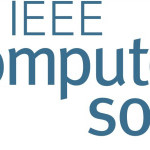- Industri: Computer; Software
- Number of terms: 50628
- Number of blossaries: 0
- Company Profile:
Founded in 1946, the IEEE Computer Society is a professional organization for computing professionals. Based in Washington, DC, it's the largest of IEEE’s 38 societies organized under the IEEE Technical Activities Board. The IEEE Computer Society is dedicated to advancing the theory, practice, and ...
Documentation that describes the architecture and design of interfaces between system and components. These descriptions include control algorithms, protocols, data contents and formats, and performance.
Industry:Computer; Software
A description of the problem and the essence of its solution to enable the solution to be reused in different settings; not a detailed specification, but a description of accumulated wisdom and experience.
Industry:Computer; Software
A functionally or logically distinct part of a software configuration item (SCI) distinguished for purposes of convenience in designing and specifying a complex SCI as an assembly of subordinate elements.
Industry:Computer; Software
A means of describing a software design. It can be diagramatic, symbolic, or textual. For example, structure charts and pseudocode are software design notations. Also called software design representation.
Industry:Computer; Software
Management of activities surrounding release of one or more versions of software to one or more customers. This activity encompasses the identification, packaging, and delivery of the elements of a product.
Industry:Computer; Software
A joint acquirer-supplier review to evaluate the technical adequacies of the software architectural design as depicted in the software design descriptions. Sometimes synonymous with preliminary design review.
Industry:Computer; Software
In UML, a relationship from an extending use case to a base use case specifying how the behavior defined for the extending use case can be optionally inserted into the behavior defined for the base use case.
Industry:Computer; Software
(1) The likelihood of an event, hazard, threat, or situation occurring along with its undesirable consequences; (2) A potential problem; (3) The probability of incurring a loss or enduring a negative impact.
Industry:Computer; Software
An artificial language used to represent a software requirement. The resulting formal requirements can be proven "correct" through proof-of-correctness methods. Also known as verifiable requirements language.
Industry:Computer; Software
A software development technique in which a system or component is expressed in terms of objects and connections between those objects. Contrast with function-oriented design and data-structure-oriented design.
Industry:Computer; Software
